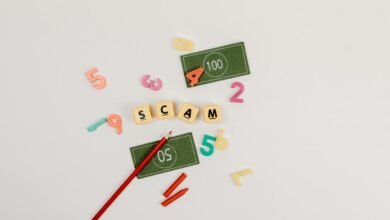Unmasking unknown callers has become increasingly vital in today’s communication landscape. Specific numbers, such as 3400909286 and 3533756229, have sparked concerns among users. Identifying these callers can mitigate risks associated with unsolicited calls. Various tools and services are available for this purpose. Understanding their effectiveness is crucial. What methods yield the best results in revealing the true identity behind these numbers?
Understanding Unknown Callers
Unknown callers represent a significant and often perplexing aspect of modern communication. Understanding caller motivations is crucial, as individuals may seek personal connections, solicitations, or even malicious intents.
This ambiguity raises privacy concerns, prompting many to question the safety of their information. Analyzing patterns in these calls can provide insights, yet the balance between transparency and privacy remains a complex challenge in today’s digital landscape.
Tools for Identifying Callers
Identifying unknown callers has become increasingly feasible with advancements in technology.
Caller identification apps enable users to quickly recognize incoming numbers, while reverse phone lookup services provide detailed information about the caller’s identity.
These tools empower individuals to reclaim their privacy and manage communication more effectively, ensuring that unwanted interruptions can be minimized.
Adopting such technologies enhances personal freedom in today’s interconnected world.
Strategies to Block Unwanted Calls
To effectively manage the influx of unwanted calls, individuals can employ several strategic measures that leverage both technology and user preferences.
Implementing call screening features on devices enhances privacy protection by allowing users to filter calls based on known contacts.
Additionally, utilizing third-party applications can further refine call blocking capabilities, enabling a more personalized approach to safeguarding personal communication against intrusive solicitations and potential scams.
Reporting Suspicious Numbers
Reporting suspicious numbers plays a crucial role in combating unwanted calls and enhancing community safety.
Adhering to established reporting procedures allows individuals to document and share their experiences, facilitating caller verification. This collective effort can aid authorities in identifying patterns of harassment or fraud.
Engaging in this practice empowers individuals, contributing to a more secure environment for all by deterring malicious callers.
Conclusion
In the realm of telecommunication, unknown callers symbolize the shadows that lurk in our digital landscape, threatening security and peace of mind. By employing caller identification apps and reverse phone lookup services, individuals can illuminate these obscured figures, transforming uncertainty into clarity. As each number is scrutinized and reported, a collective effort emerges, crafting a stronger barrier against unwanted intrusions. Thus, vigilance becomes not just a personal duty, but a communal shield against the pervasive darkness of unsolicited communication.





